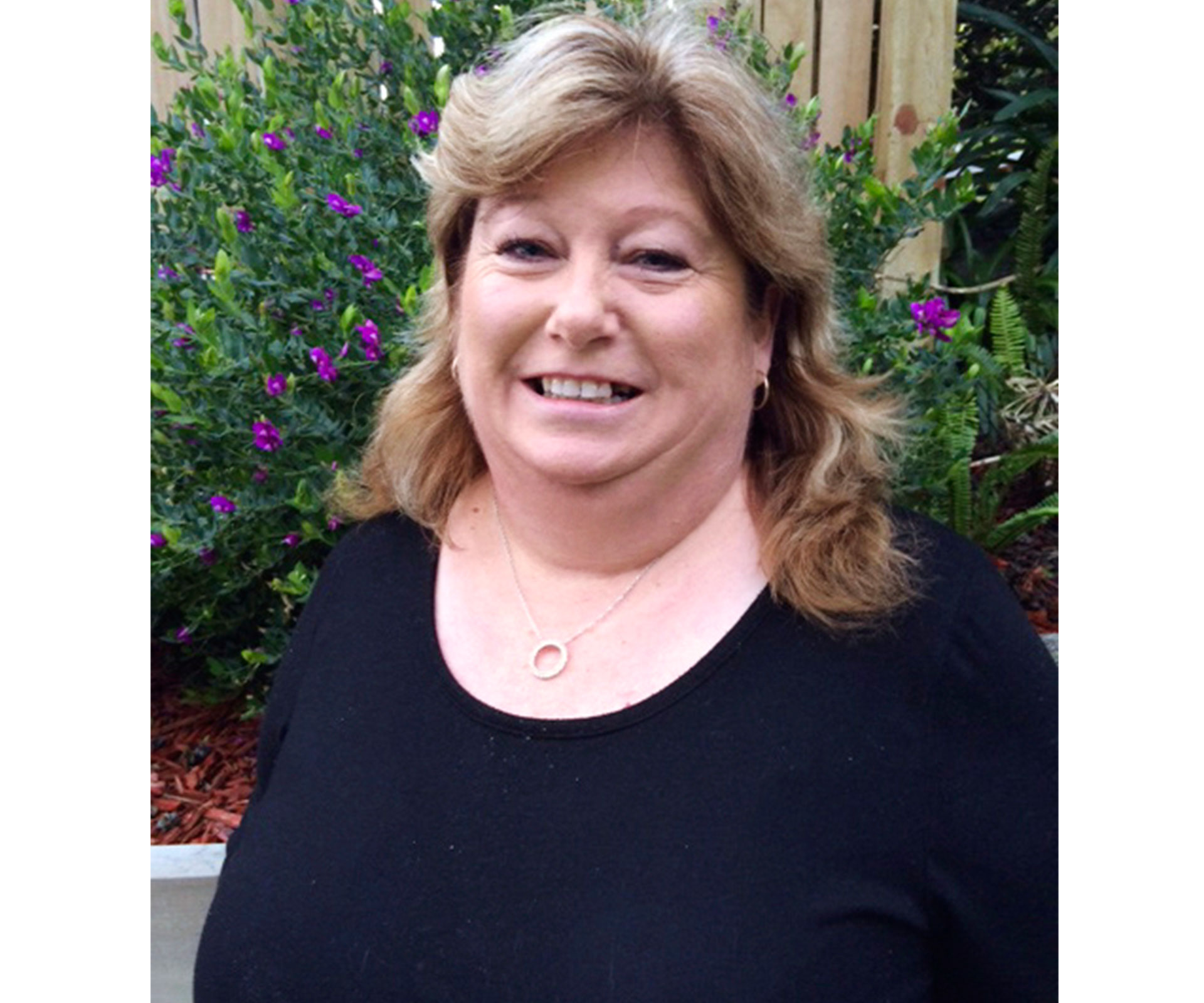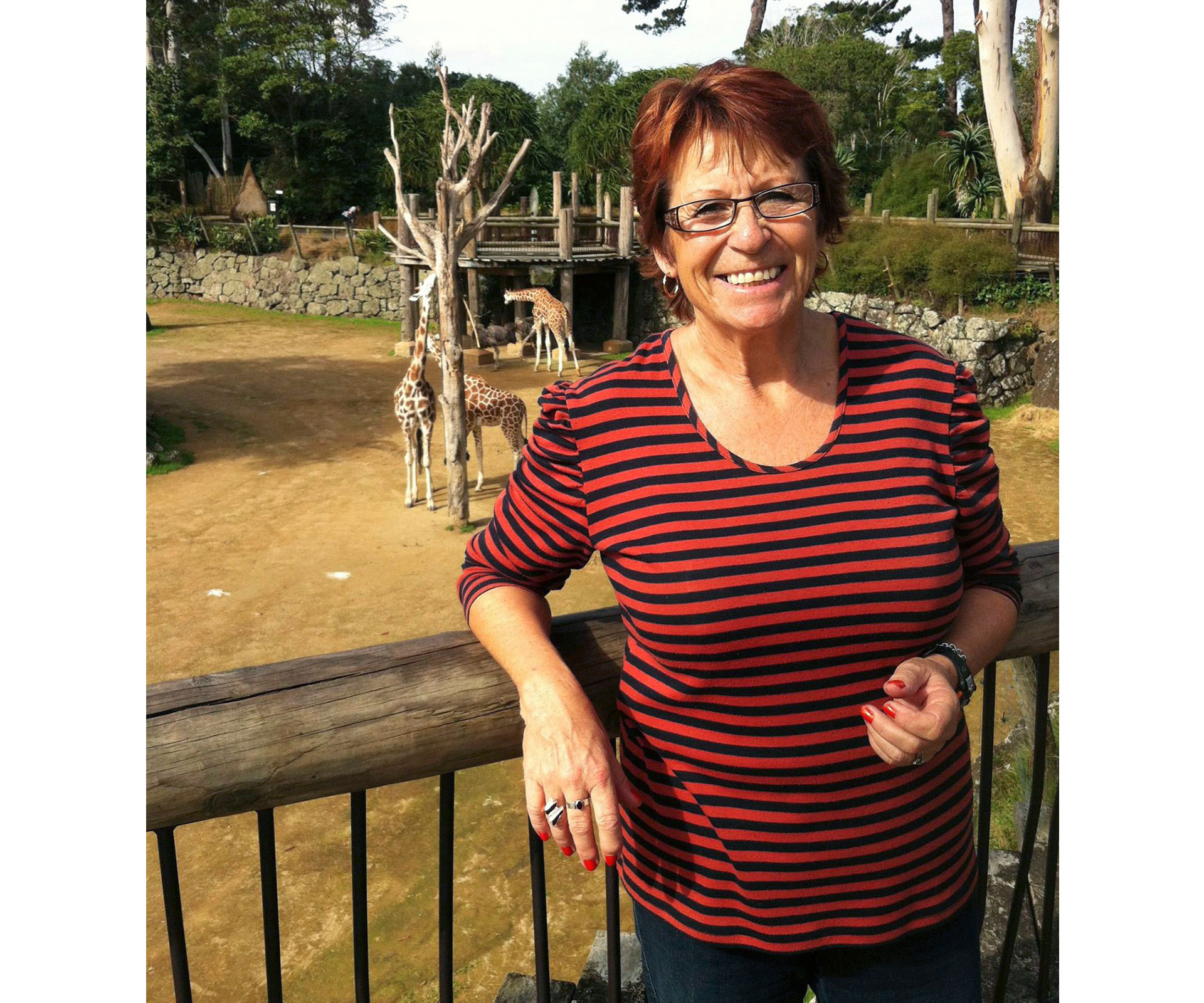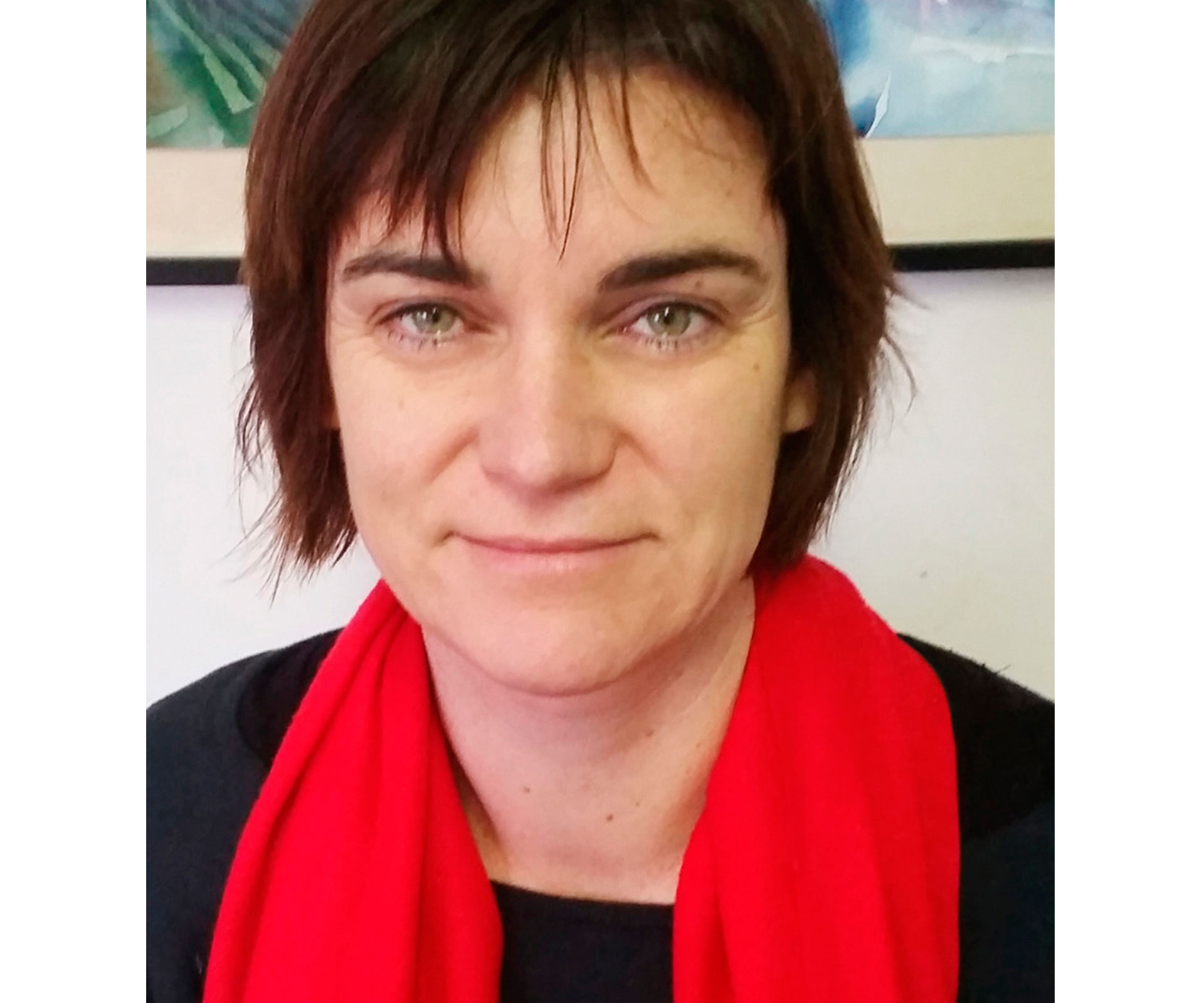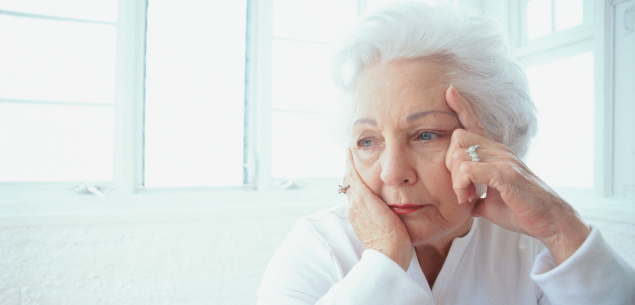Dementia has long been one of our biggest health worries – and with New Zealand’s ageing population, it’s a condition expected to become more widespread.
Consequently, there is huge excitement around the latest international research, which indicates there could be a way to slow the progress of this incurable disease. Early trial findings suggest the experimental drug solanezumab, developed by pharmaceutical giant Eli Lilly, could reduce the speed of progression of mild Alzheimer’s disease by roughly one third. While experts warn more verification is needed in a further trial, if those results are positive, it could be a game-changer.
Any good news can’t come soon enough. Approximately 50,000 New Zealanders have been diagnosed with dementia – a figure predicted to reach 150,000 by 2050. Indeed, it’s hard to find someone who hasn’t been affected by dementia. According to data from Alzheimers New Zealand, two out of every three Kiwis are touched in some way by the disease. The economic ramifications are massive. In 2011, it was estimated the total financial cost of the illness to New Zealand was almost $1 billion.
Dementia is an umbrella term used to describe a group of conditions that change and damage the brain. Alzheimer’s is the most common form of dementia and accounts for about 50 to 60 per cent. Others include vascular dementia, Lewy body disease and frontotemporal dementia.
The causes of most forms, including Alzheimer’s disease, remain largely unknown, with genetic links accounting for just one to two per cent of Alzheimer’s cases.
However, the biggest risk factor is age, while high blood pressure, high cholesterol, smoking, diabetes, obesity and the presence of the risk gene APOE-e4 also have a part to play. Women are at the centre of this crisis. In New Zealand, 60 per cent of people diagnosed with dementia are women. Data from the Alzheimer’s Association reveals that at the age of 65, women without Alzheimer’s have more than a one in six chance of developing the disease during the remainder of their lives – compared with a one in 11 chance for men.
The issue of why women appear more vulnerable to the disease is the focus of ongoing research. A recent study at the Duke University Medical Center in America revealed women with mild cognitive impairment, a condition that can precede dementia, declined at twice the speed of men.
Alzheimers New Zealand executive director Catherine Hall believes it’s important to recognise the impact of dementia on women. “Most people with dementia are women – yet it’s women who are more likely to provide the care and support in a family situation,” she says. “They are also more likely to be the provider of formal care in a community or in a rest home setting.”
So with dementia remaining one of New Zealand’s most significant and growing healthcare challenges, how well prepared are we? According to Catherine, more help is needed in home and community support services to ensure those who want to stay at home can remain there for as long as possible.
“In general, across the country, there are not enough resources, and they are not flexible enough,” she says. “Some areas don’t have specialist dementia units, and we don’t have anywhere near enough services for younger people who have dementia and might need residential care. As a result, they are often forced into rest homes for older people, which is not appropriate for them or the older people.”
Catherine points out that while there has been a substantial amount of work done to respond to the dementia challenge in recent years, we still have a long way to go. “Dementia has a significant impact on families, communities, our healthcare system and our economy, and the numbers are forecast to increase dramatically,” she says.
Work is already well underway in New Zealand with some of our top researchers trying to understand more about the condition. Professor Cliff Abraham, who is co-director of Brain Research New Zealand, is working on identifying molecules in the blood that could indicate, in a blood test, whether a person has the disease before they show any characteristic symptoms.
“Identifying those who have the disease early, before clinical diagnosis, means you can start treatment at the earliest stage possible, when it’s most likely to have an effect,” he explains. “If you start after clinical diagnosis when a lot of brain damage has already occurred, it gets very hard for treatments to have much effect.”
The University of Otago professor is also involved in researching whether health-promoting molecules may be able to delay the disease or improve cognitive functions if their presence is boosted in the brain.
Meanwhile, University of Auckland associate professor Maurice Curtis, who is deputy director of the Human Brain Bank, is investigating how Alzheimer’s spreads, and whether there are any early changes in the brain that haven’t yet been identified.
“We are interested in those first events that take place,” he says. “For instance, long before someone will experience the overt symptoms of Alzheimer’s disease, they often have already lost their sense of smell. This can occur four to 10 years before Alzheimer’s disease, and that’s quite a big window in which
to intervene.”
Dr Curtis is also looking at the way the brain changes to compensate for dying cells caused by toxic proteins that build up in the brain of a person with dementia. “Some areas of the brain actually seem to exhibit new brain cell production,” he reveals. “If we can create the right conditions in the brain to allow those cells to successfully grow and remodel themselves, then perhaps they won’t die, and the symptoms won’t get worse.”
We met three New Zealanders for whom dementia is very much a part of their everyday life, as they share firsthand their experiences of the disease

Lynda Corcoran, the devoted daughter
The devoted daughter
Lynda Corcoran, 54, from Wellington, is a self-employed caterer.
At the beginning of our journey we had no idea about the stress and pressure placed on a family as it watches a loved one live with dementia. It was incredibly hard to watch the strong, capable and agile woman I had always known as my mother suddenly struggling with simple day-to-day tasks.
When she was first diagnosed with dementia and Alzheimer’s disease three years ago, there was absolutely no question in my mind that I would be the one to care for her full-time. I sat down with my husband Michael and my two teenage daughters, Michaela and Laura, and we all agreed it was the best option. We were in a unique situation.
My mother had already lived with us for 15 years, initially in a granny flat behind our home before moving into our house a few years before her diagnosis. We decided as a family we would rally around and do whatever was necessary to make her feel comfortable and safe, and still function as a family unit. We did everything we could; even alarming the front and back doors so she couldn’t get disorientated at night and wander off outside.
I took care of her every need, showering her in the morning – until, conscious of her dignity, I arranged for a woman to shower her three times a week – making her breakfast, lunch and dinner, baking biscuits for her tea and making sure she had someone with her at all times. I have always been a doer and it was just what had to be done. I would make the best of a bad situation.
It’s only now, looking back, that I can see the enormous toll this began to take on me, and how it slowly began to wear me down over the two years I cared for Mum. It sounds awful, but as her dementia progressed it became like having a child in the house. It didn’t matter where I was, she would always be two steps behind me. I became her rock. She got anxious when I wasn’t around. For her, it was a security thing. It meant towards the end it became very difficult for me to leave the house.
I coped because, like my mother, I have a good sense of humour, and laughter helped me during the hard times. When it became really stressful, I would throw myself into things – shopping with a vengeance, or rubbing the carpet raw with the vacuum cleaner because I was angry. I was angry that this was not my mother and that it was happening to her and there was not a damn thing I could do about it. I couldn’t bring back her day-to-day memory, which was disappearing faster than I could keep up with.
I know my husband and daughters would say that, over time, I became short tempered with them, but more tolerant with my mother. My husband and daughters were amazing. My girls were so mature and I’m incredibly proud of them. When we went out as a family they would hold her hand because she was often confused about what was happening.
Then, out of the blue, Mum began to have episodes where she would fall asleep and have some sort of fit, and we couldn’t wake her. She was admitted to hospital and the doctors determined it was a progression of the dementia brought on by anxiety. During this time the doctors told me she needed to be in a rest home with dementia facilities.
The regular routine would also help keep her calm and happy, unlike our hectic household.
Making the decision to let her go into a rest home was one of the worst weeks of my life. I don’t know how many buckets of tears I cried. All the way through I said I would look after Mum and I felt like I had let her down. I felt an overpowering sense of grief and loss. She was confused when she went in there and didn’t know why I was leaving her. I really battled with myself about whether I had done the right thing. I think because I had become her mother as such, it was almost as if I was sending away one of my children. It sounds bizarre, but I guess from the time she was diagnosed I began to realise I had lost my mother.
When I went to the rest home for the first time, the nurses told me how happy she was and how she was always laughing and chatting away. Here I was at home thinking I was the world’s worst person and she was having a whale of a time!
She loves the rest home. The lounge overlooks farmland, like where she grew up, and she gets involved in craft and they go on day trips. I remember the second time I saw her at the rest home she said, ‘It’s been so lovely having you visit, but you don’t have to come all the time because I am busy doing things here.’ I got in my car and drove away and it was as if a tonne of concrete had been lifted from my shoulders.
I think when Mum really started to become dependent on me, there was a time when I possibly didn’t see her as my mother any more. But it’s quite lovely now because I’ve got my mother back. When I go to see her I don’t have to do anything for her. We just sit there and have a chat and a laugh.
What we went through as a family has definitely made us closer. We consider ourselves lucky – she is in a safe place and she’s still alive. I can still go and talk to her.
There will be a time when she won’t be here, and those are the times for the tears. Not now. Mum gave birth to me, she ran around after me for years, she was a great mother, and she still is. I had a very happy childhood because of her. If I had to do it all again for her tomorrow I would.

Sue Robertson was diagnosed with Alzheimer’s disease at age 55.
The young sufferer
Sue Robertson, 56, lives in Christchurch.
I remember telling my doctor it would be my worst fear if the results of all the tests I had taken revealed I had Alzheimer’s disease. So when he confirmed last year I had early onset Alzheimer’s I was absolutely devastated. How could this happen to me? I was only 55 years old! It was just awful. I cried for days and days.
In time I said, ‘I am not going to just lie around and feel sorry for myself; I have to pick myself up.’ I just gave myself a kick in the arse and said, ‘Get on with it, you are not dead yet!’ So that’s what I did. I focused on my children – my two sons Adam and Geoffrey and my two grandchildren. Just because I was sick didn’t mean they had to lose their mum.
There were warning signs that things weren’t right. A few years before I was diagnosed, I was driving down the road and all of a sudden there was just a big black mass ahead and I had to pull over and wait until it was gone. That was really scary. There were other things –forgetfulness was a big one.
Things got so bad I left my job and moved in with my 27-year-old son Adam about a year before I was diagnosed. He has been absolutely amazing. I feel like Adam has changed my life because he has been such a wonderful son. He changed jobs so he had more time to go to the many medical appointments and tests I had to go through. He was always beside me. My other son Geoffrey lives in Australia and does what he can from overseas. He calls every other day and sends money to help out.
When I was diagnosed, everything changed. I had to stop driving. That was really hard because I lost my independence. Being told what I have to do, not what I want to do, also isn’t easy. I have lots of feelings of being trapped and I just can’t get out of where I am. I feel like I am in a box. I can only go so far without needing the help of someone else.
I try not to let it hold me back. I am terrified of heights, but recently managed to scale a climbing wall with Adam and his son. I go for hour-long walks every day by myself; I don’t need to be accompanied all the time yet. I also love aqua jogging. They say fitness is one of the best forms of treatment, so I stay as active as I can.
Adam recently arranged for me to start volunteering at Willowbank Wildlife Reserve one morning a week – doing gardening mostly, weeding and planting trees. I didn’t want the pressure of paid employment so this works well. I am working on my own and people aren’t telling me how to do things.
I have been very lucky with the support network around me. I went to a few workshops with other people with Alzheimer’s, but I didn’t enjoy it because most of them are so much older than me. But I have been amazed at people’s generosity. Adam wanted to help me fulfil my dreams of travelling overseas and to give us some great memories, and he managed to get sponsorship from Flight Centre and Trafalgar to provide an all-expenses-paid trip to Europe for two weeks. That gave me something to look forward to.
I have good days and bad days. On the bad days Adam tells me I can have the same conversation with him five times in two hours. But I just keep moving.
My advice to others who are in the same position as me is to keep moving. Stay active. Try to keep your head in the right space.
There has been some good to come out of all this. It has brought our family closer together. My sons are now as close as two brothers could be. We look after each other a bit more. I just hope that someone out there can find me a cure.

Sacha O’Brien helping those with the disease.
The health worker
Sacha O’Brien, 44, is a social worker, at Alzheimers Canterbury, in Christchurch.
When I first began working with people with dementia I was in my early 20s and employed in a rest home dementia unit. I had never been around someone with dementia before. I guess I didn’t know what to expect – probably that it would be hard work and quite stressful. But I was surprised. I loved it and really took to it. I loved spending time with the residents. I have always found the people who work in rest homes have big hearts.
It was the beginning of a career that would lead to me gaining a degree in social work and into my current role working as a social worker for Alzheimers Canterbury. When a person is diagnosed with dementia they are referred to us, and we provide support services throughout their journey – potentially right through until they go into residential care.
I visit people in their homes, provide information about dementia, and our team holds education workshops, support groups and runs community-based activities. I have 100 people on my books – some need a lot of support and others need less. People can choose to be involved in our service as much or as little as they want to be.
I think it helps that I was a carer before I took on my current role. It has given me real insight into what the family is going through and some of the stresses that
can be involved.
I have also seen up close what it can be like for a person with dementia to get through their day. It can be very solitary and isolating – and for their spouses and family as well. Their whole world can change so much, and they have to manage not only the changes, but often all the grief and loss that comes with that. Family members may have to manage someone’s confusion, someone’s vulnerability, their anxieties, sometimes behavioural changes, and being there 24/7, so they may not always get enough time out for themselves.
Sometimes the families I encounter ask me how I can do my job, but to me they are the ones doing the hard yards; they didn’t choose this, but I did.
From the outside you might think it’s very negative and challenging work, but I always feel really positive about what we do. I feel our team is making a positive difference in people’s lives, so it’s actually fulfilling, heart-warming work. I meet some wonderful people, some wonderful families, and they keep me going. It’s great to see people engage with some of the services we offer, to be able to support them, and also to see the friendships that form from such a hard experience – people with dementia bonding and families seeking support from each other. It’s neat to be part of the humour they share, and it’s incredible to see all the love and support families give to their loved ones.
There can be challenges though. You get to know your clients pretty well, and you can be with them throughout a very intense time in their lives. It can be hard because it’s a progressive illness. When a person is transitioning into care and you know it’s too hard for the family to manage any longer, you can get affected by that. But it’s good to keep clear in your head what your role is.
The other challenge is the lack of resources. The government wants people to stay in their homes for as long as possible, and that’s what is often best for them as well, but there are not always the resources available to support them and their families to make that happen. That is frustrating.
The shortfall can be harrowing for people with dementia and their families – everyone in the family is affected and touched by it. People are being diagnosed earlier in their illness now, so it’s important they understand they can still keep living well and enjoy themselves.
There can be negative stories in the press that show the more distressing side of the illness, whereas we often work with people who are still managing to live well. That’s a great thing to focus on – what you can keep doing in your life.
Words by Rene Jones
Illustrations by Marsha Smith and Getty Images.


